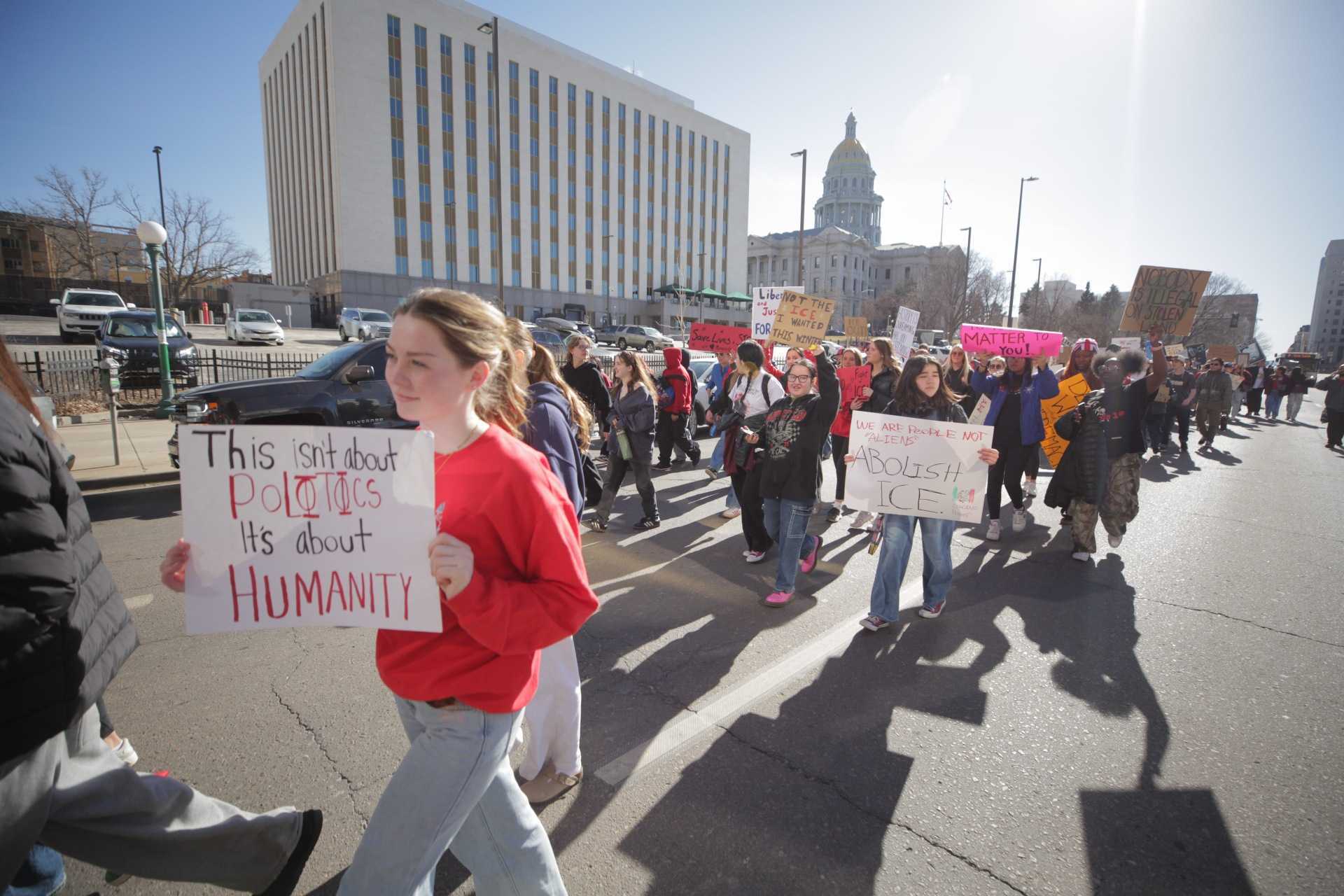
This story was produced as part of the Colorado Capitol News Alliance. It first appeared at kunc.org.
A bill from Democrats to expand protections for immigrants is now one step away from Gov. Jared Polis’ desk, but the governor continues to have doubts over the proposal.
The measure, Senate Bill 276, which passed the Colorado House Saturday, is in part a response to the Trump administration’s hardline immigration actions, although lawmakers began working on it before he took office this year. It would add to existing limits on local cooperation with federal immigration authorities.
Two of its most significant provisions would prohibit local governments from sharing individuals’ personal data with federal immigration authorities and block immigration agents from operating in non-public areas of government buildings, jails and prisons unless they have a valid warrant.
The bill also does away with citizenship disclosures when applying for state IDs or in-state tuition and adds protections for immigrants who plead guilty to low-level crimes.
Democrats argue it’s needed to counter the Trump administration’s immigration crackdown, which they say has violated constitutional and civil rights.
“Our human rights, our constitutional rights do not stay behind when we cross the border. They come with us,” said bill sponsor Elizabeth Velasco, D-Glenwood Springs, the state's first Mexican-born lawmaker.
Velasco’s co-sponsor in the House, Rep. Lorena Garcia of Denver, says she has seen firsthand the atmosphere of fear the federal government has created for immigrants, even for those who are now citizens.
“My wife is afraid to leave the house, and she is a citizen. She is brown and speaks with an accent.” Garcia said on the House floor, her voice shaking with emotion. “Violation of due process opens the door wide open for racial profiling.”
Republicans oppose the bill, claiming it would undermine public safety. They also argued it would likely prompt the Trump administration to pull federal funding from Colorado.
"Federal funding is the backbone of 25 percent of our budget. To jeopardize any piece of it is ludicrous,” said Rep. Ron Weinberg, R-Loveland. “We cannot be impulsive with the current administration. We’re throwing up red flags all the way, and this is one of many.”
Despite Republican opposition, the bill passed the House along party lines after several hours of debate Saturday. It also passed along party lines in the Senate last month.
The legislature now has to work out final amendments before sending it to Polis. Lawmakers have spent months negotiating to lock in his support, but it’s not clear whether the governor will sign the bill.
“The Governor’s office has expressed concerns about the original version of SB 25-276,” a spokesperson for the governor said in a statement. “Colorado is not a sanctuary state, and Gov. Polis continues urging Congress to secure the border and do their job and pass comprehensive immigration reform.”
The House vote came one day after the Department of Justice filed a lawsuit against the state and the city of Denver, arguing that some of its existing policies unlawfully encroach on the federal government's jurisdiction over immigration enforcement.
Several measures passed over the last few years made it illegal in Colorado for law enforcement within the state to arrest or detain people on behalf of federal immigration authorities and prohibited local and state governments from entering into contracts with them.
This story was produced by the Capitol News Alliance, a collaboration between KUNC News, Colorado Public Radio, Rocky Mountain PBS, and The Colorado Sun, and shared with Rocky Mountain Community Radio and other news organizations across the state. Funding for the Alliance is provided in part by the Corporation for Public Broadcasting.








